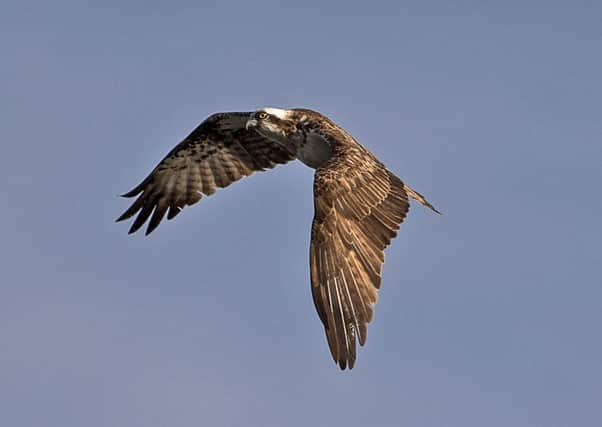Twitchers' joy at rare visitor to Doncaster's nature reserve


The osprey has moved away from its breeding site – either in Scotland or Scandinavia – on the start of its migration down through Europe into West Africa .
And it has been on the Potteric Carr reserve in the borough for the last two weeks, the site’s longest staying osprey.
Advertisement
Hide AdAdvertisement
Hide AdAndy Dalton, Potteric Carr programme manager said: “The osprey is fuelling up for an epic journey to Africa – probably taking advantage of the good weather we have had so far.
“It could depart any day soon – so we encourage people to come down for the chance to see this amazing animal.
“A juvenile osprey stayed at our Sprotbrough Flash nature reserve for six weeks a few years ago – so fingers crossed this one stays a few days more!”
The spectacular fish-eating bird of prey is an Amber List species because of its historical decline (due to illegal killing), and low breeding numbers.
Advertisement
Hide AdAdvertisement
Hide AdThe bird is best looked for at Potteric from Duchess Hide overlooking Huxter Well Marsh and late mornings have been a good time to view the bird so far.
The RSPB said the osprey used to be distributed throughout Europe, but heavy persecution, mainly by Victorian egg and skin collectors, during the 19th and early 20th century brought about dramatic decreases and extinctions.
The osprey became extinct as a breeding bird in England in 1840 and in Scotland in 1916, though it continued to occur as a passage migrant.
In 1954 it re-colonised naturally, through birds thought to be of Scandinavian origin
Advertisement
Hide AdAdvertisement
Hide AdThe early re-colonisation was very slow, and had reached only 14 pairs by 1976. Fifteen years later, there were 71 pairs.
In 2001, 158 breeding pairs were located, mainly in Scotland. That same year saw the first successful nesting of ospreys in England for 160 years.